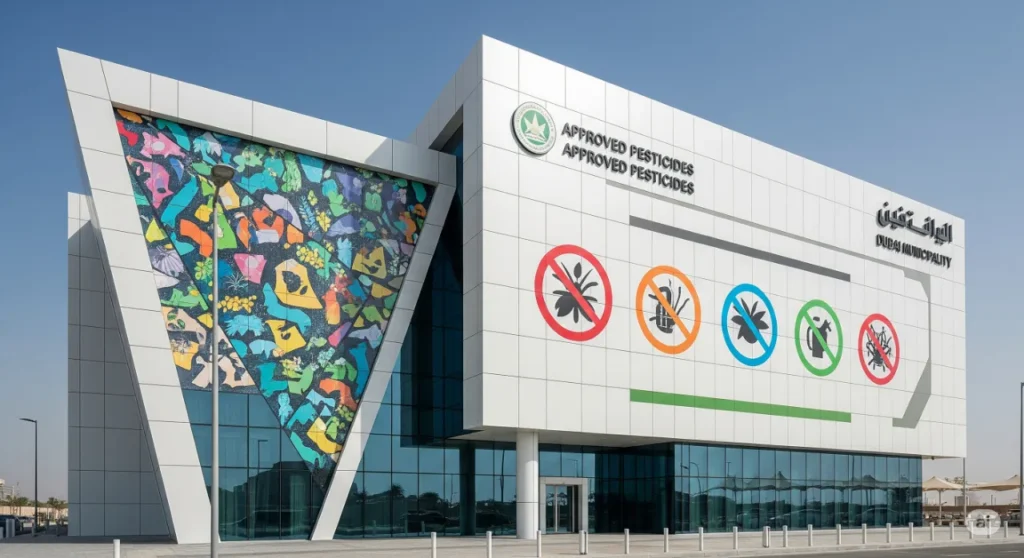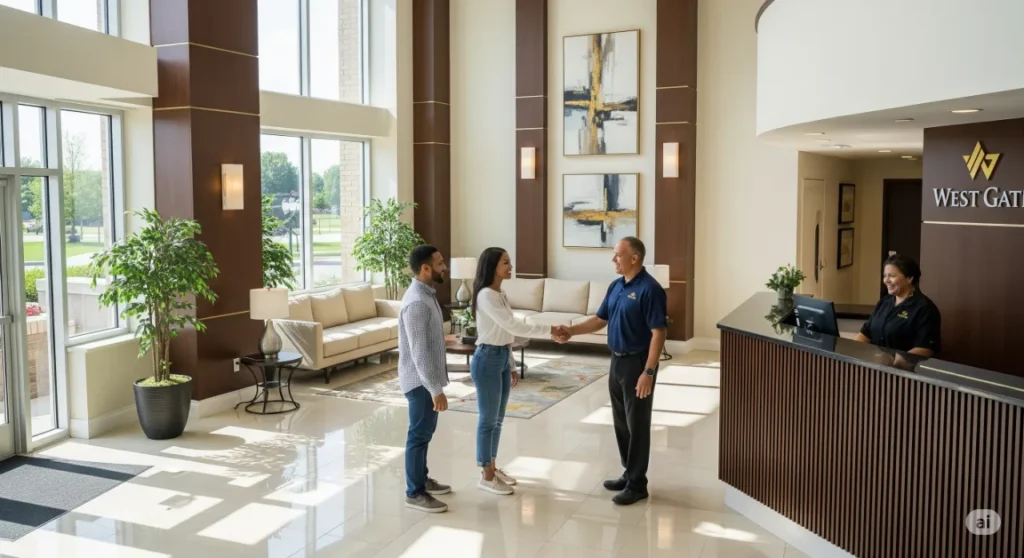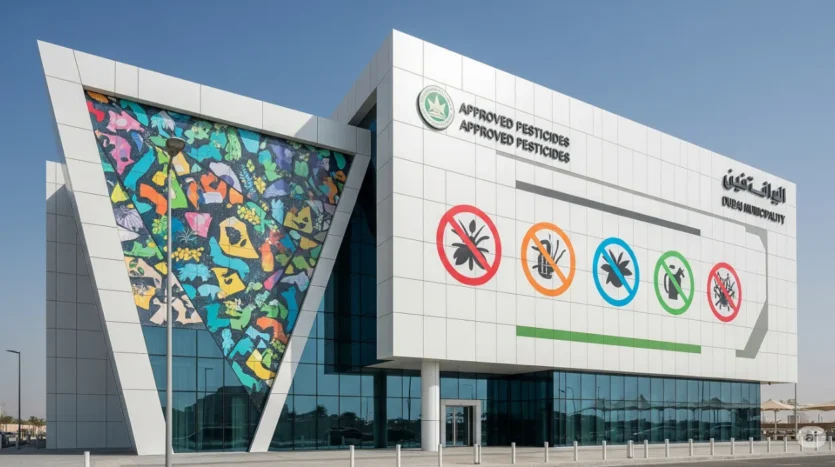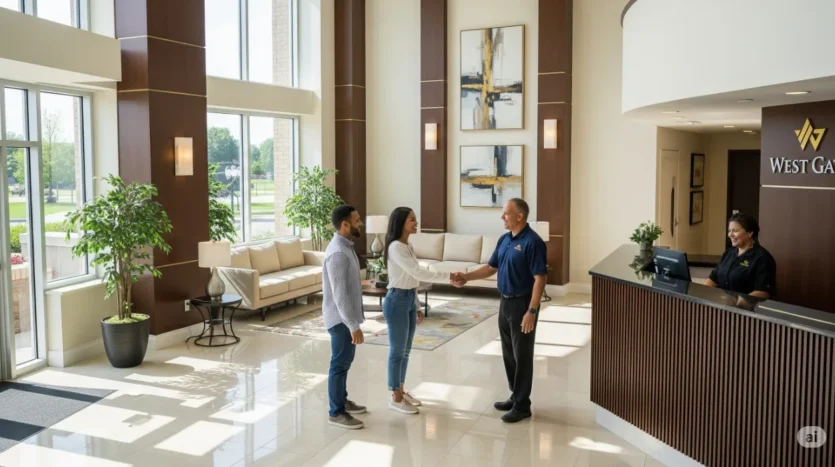How to Manage Pest Control on Your Property in Dubai
To keep pests away from Dubai properties, landlords should (1) comply with Dubai Municipality rules, (2) follow an Integrated Pest Management plan—inspection, prevention, eco-friendly treatment, monitoring—and (3) hire only licensed contractors. Quarterly inspections, moisture control, and tenant education reduce infestations by up to 70 %, protecting health, rental income, and asset value.
1. Why Pest Control Deserves Top Priority in Dubai
Dubai’s warm, subtropical climate, dense high-rise living, and year-round construction boom create ideal conditions for pests—especially cockroaches, bed bugs, termites, and mosquitoes. Beyond the “yuck” factor, infestations can:
- Spread allergens and disease (e.g., dengue carried by mosquitoes according to the World Health Organization).
- Cause costly structural damage—Formosan termites can hollow beams in months.
- Violate local health codes, leading to penalties or tenant claims.
- Lower tenant satisfaction and retention, driving up vacancy rates.
Keeping pests under control is therefore not just good housekeeping; it is a risk-management imperative for every landlord or investor.
2. The Legal Landscape: Dubai Municipality & UAE Regulations

Dubai has some of the Middle East’s strictest pest-control rules:
- Dubai Municipality approval: Only companies listed by the Public Health Pest Control Section may apply pesticides or fumigate buildings. Hiring an unlicensed operator can trigger fines of up to AED 50,000.
- Chemical restrictions: Aluminium phosphide and other high-toxicity compounds are banned for residential use; fines apply for improper storage. (Source: Khaleej Times)
- Mandatory reporting: Landlords must report major infestations or suspected poisoning incidents to 800 900 within 24 hours.
- Post-storm action plans: After heavy rains, the Municipality deploys mosquito-control teams and issues updated preventive guidelines. (Source: Dubai Government Media Office)
Failure to comply can void insurance and expose owners to civil liability—further proof that pest control is a legal, not optional, task.
3. Know Your Enemy: Dubai’s Most Persistent Pests
| Pest | Peak Season | Red-Flag Signs | Health / Property Impact |
|---|---|---|---|
| German Cockroach | Year-round; spike May–Sep | Musty odor, droppings, live sightings at night | Food contamination, asthma triggers |
| Bed Bug | High-travel periods & cooler months | Itchy welts, blood spots on sheets | Legal claims, replacement of soft furnishings |
| Subterranean Termite | Feb–Jun | Mud tubes, blistered paint, hollow wood | Structural weakening, resale value drop |
| Asian Tiger Mosquito | After rainfall & in shaded villas | Buzzing, bites near ankles, larvae in water | Dengue, chikungunya risk |
| Roof Rat | Nov–Feb | Scratching in ceilings, gnaw marks | Fire risk (wiring), disease vectors |
Identifying the culprit early guides the right treatment and prevents over-use of chemicals.
4. Integrated Pest Management (IPM): A Four-Pillar Framework
IPM combines science-based prevention with minimal, targeted pesticide use—exactly what Dubai Municipality recommends.
4.1 Pillar 1: Thorough Inspection
- Frequency: Quarterly for apartments, monthly for villas near landscaping or water features.
- Tools: LED flashlight, moisture meter, termite d-probe, sticky traps.
- Records: Log findings in a digital register (photo + location) for trend analysis.
4.2 Pillar 2: Prevention & Exclusion
- Sanitation
- Daily waste removal and sealed garbage chutes.
- Kitchen grease traps cleaned weekly.
- Moisture Control
- Repair AC condensation leaks within 24 hours.
- Grade soil away from foundations; add gravel drip lines.
- Structural Sealing
- 3 mm silicone caulk around pipes.
- Steel mesh on weep holes and roof vents.
- Landscape Management
- Trim foliage 30 cm from walls.
- Remove standing water from pots, fountains, and A/C trays.
4.3 Pillar 3: Targeted Treatment Options
| Method | Best For | Dubai-Approved Chemicals* | Pros | Cons |
|---|---|---|---|---|
| Gel baits | Cockroaches, ants | Fipronil 0.05 % | No spray, long residual | Needs tenant cooperation |
| Low-odor pyrethroids | Occasional invaders | Deltamethrin 2.5 % | Quick knock-down | Limited residual outdoors |
| Growth regulators | Mosquito larvae | Methoprene | Eco-friendly | Must treat all water sources |
| Bait stations | Rodents | Brodifacoum | Minimal contact | Regular monitoring required |
| Foaming termiticides | Subterranean termites | Imidacloprid 0.05 % | Penetrates galleries | Professional application only |
*Always verify the latest Dubai Municipality approved list before purchase.
4.4 Pillar 4: Ongoing Monitoring & Reporting
- Sticky-trap counts every visit.
- Digital dashboard to flag sudden spikes (>30 % increase triggers re-inspection).
- Annual summary sent to owners and strata boards—key for compliance and resale.
5. Choosing a Licensed Pest Control Provider
According to Bayut’s industry guide on top exterminators, an ideal contractor should offer:
- Dubai Municipality licence, liability insurance, and safety data sheets.
- IPM training for technicians and bilingual (Arabic/English) reporting.
- Low-toxicity options and child-safe protocols.
- Emergency 24/7 response within two hours anywhere in Dubai.
- Post-service warranty (30–180 days, pest-specific).
West Gate’s vendor panel meets all of these checkpoints and negotiates bulk rates for portfolio landlords.
6. DIY vs. Professional Services: What Really Saves Money?
| Scenario | DIY Cost (AED) | Professional Cost (AED) | Hidden Costs / Risks |
|---|---|---|---|
| One-off cockroach gel in studio | 120 | 300 | Improper placement → repeat infestation |
| Bed-bug heat treatment 2 BR | 2,000 (equipment hire) | 1,500 | Overheating may warp furniture |
| Termite barrier for villa | 1,800 (chemicals) | 3,200 | Incomplete trenching → structural damage |
| Mosquito larvicide in garden | 80 | 500 | Missed drains → disease risk |
Bottom line: DIY can work for light issues, but for bed bugs, termites, or multi-unit buildings, professional service is cheaper in the long run.
7. Cost–Benefit Analysis for Dubai Landlords
Assume a 1-bed in JVC rented at AED 75,000/year.
| Metric | With Preventive Plan | No Plan (Reactive) |
|---|---|---|
| Annual pest budget | AED 800 | AED 200 |
| Avg. vacancy from pest complaints | 0 days | 10 days (≈ AED 2,055) |
| Emergency treatments | 0 | AED 1,200 |
| Minor repairs (chewed cables, repaint) | AED 350 | AED 1,000 |
| Net impact | + AED 1,805 | – AED 0 |
Preventive IPM returns ≈ 225 % on investment per unit—before considering tenant goodwill and resale uplift.
8. How West Gate Protects Your Investment—Our Proven Process
Visit our Property Management page to see full details, but here’s the snapshot:
- Prevent – We schedule quarterly inspections, leak checks, and landscape reviews while liaising with municipal teams after storms.
- Treat – Only DM-approved, eco-friendly contractors enter your property; we negotiate group discounts across our portfolio.
- Report – Every visit generates a PDF report with photos, chemical lists, and next steps, stored in your owner portal.
The same gold-standard process applies to our extensive properties for rent, for sale, and lucrative off-plan projects—so investors enjoy passive income while we handle the bugs.

9. Case Study: Cutting Complaints, Raising ROI
Property: 2-bed marina apartment, floor 27.
Problem: Monthly cockroach sightings, tenant threatening non-renewal.
Action: West Gate deployed IPM—gel baits, waste chute cleaning, door sweeps.
Results (12 months):
- Complaint rate: 7 → 0
- Renewal rate: 100 % (vs. area average 78 %)
- Rent uplift: + 6 % YOY
- Owner saved: AED 4,800 in avoided vacancy and treatments.
10. Future-Proofing: Smart Technology & Sustainable Trends
- IoT Rodent Traps – Push notifications on activity, reducing inspection labor by 30 %.
- Biological Controls – Bacillus thuringiensis for mosquito larvae in decorative ponds.
- Drone Inspection – Thermal cameras spot roof nests and termite heat signatures.
- Green Building Credits – DEWA now awards efficiency points for IPM certification—useful for premium rents.
West Gate is already piloting smart traps in selected units; early data shows 45 % faster response vs. manual checks.
11. Frequently Asked Questions
Q1: How often should I service my apartment?
Quarterly is the Dubai standard; villas may need monthly during summer.
Q2: Are pets safe during treatment?
Yes—licensed technicians use pet-safe gels and ask occupants to vacate only during fogging.
Q3: What if my tenant refuses access?
Our management agreements include a “right of entry for health and safety.” We coordinate 48-hour notices in English and Arabic.
Q4: Can I pass pest-control costs to tenants?
For furnished, short-term lets, yes. For annual leases, landlords typically cover preventive plans; emergency call-outs from tenant negligence can be re-charged.
For deeper leasing tips, see “10 Tips for Finding the Perfect Tenant” and “6 Reasons to Hire a Property Management Company”.
12. Final Thoughts & Next Steps
Effective pest management in Dubai blends:
- Strict legal compliance
- Science-based IPM
- Consistent professional oversight
Skip any piece and you invite health risks, fines, and profit erosion. Partner with West Gate, and you’ll never have to worry about the bugs—or the paperwork—again.
We have hundreds more properties ready for investors who want stress-free ownership. Complete our quick inquiry form and a licensed West Gate agent will contact you with curated options, rental forecasts, and a detailed pest-control plan.
Contact Us Today and let’s make your Dubai investment both pest-free and profit-rich.






